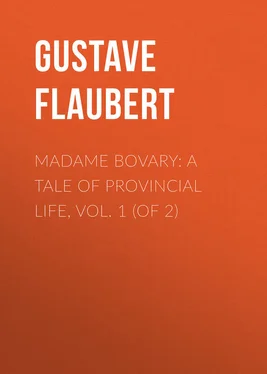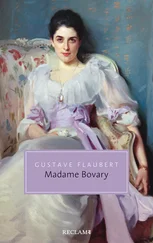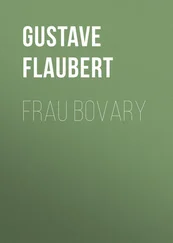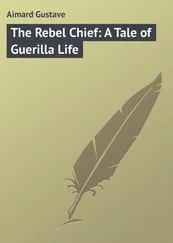Gustave Flaubert - Madame Bovary - A Tale of Provincial Life, Vol. 1 (of 2)
Здесь есть возможность читать онлайн «Gustave Flaubert - Madame Bovary - A Tale of Provincial Life, Vol. 1 (of 2)» — ознакомительный отрывок электронной книги совершенно бесплатно, а после прочтения отрывка купить полную версию. В некоторых случаях можно слушать аудио, скачать через торрент в формате fb2 и присутствует краткое содержание. Жанр: foreign_antique, foreign_prose, на английском языке. Описание произведения, (предисловие) а так же отзывы посетителей доступны на портале библиотеки ЛибКат.
- Название:Madame Bovary: A Tale of Provincial Life, Vol. 1 (of 2)
- Автор:
- Жанр:
- Год:неизвестен
- ISBN:нет данных
- Рейтинг книги:5 / 5. Голосов: 1
-
Избранное:Добавить в избранное
- Отзывы:
-
Ваша оценка:
- 100
- 1
- 2
- 3
- 4
- 5
Madame Bovary: A Tale of Provincial Life, Vol. 1 (of 2): краткое содержание, описание и аннотация
Предлагаем к чтению аннотацию, описание, краткое содержание или предисловие (зависит от того, что написал сам автор книги «Madame Bovary: A Tale of Provincial Life, Vol. 1 (of 2)»). Если вы не нашли необходимую информацию о книге — напишите в комментариях, мы постараемся отыскать её.
Madame Bovary: A Tale of Provincial Life, Vol. 1 (of 2) — читать онлайн ознакомительный отрывок
Ниже представлен текст книги, разбитый по страницам. Система сохранения места последней прочитанной страницы, позволяет с удобством читать онлайн бесплатно книгу «Madame Bovary: A Tale of Provincial Life, Vol. 1 (of 2)», без необходимости каждый раз заново искать на чём Вы остановились. Поставьте закладку, и сможете в любой момент перейти на страницу, на которой закончили чтение.
Интервал:
Закладка:
Going home at night, Charles went over her words, one by one, trying to recall them, to fill out their sense, that he might piece out the life she had lived before he knew her. But he never saw her in his thoughts other than he had seen her the first time, or as he had just left her. Then he asked himself what would become of her – if she would be married, and to whom? Alas! old Rouault was rich, and she! – so beautiful! But Emma's face always rose before his eyes, and a monotone, like the humming of a top, sounded in his ears, "If you should marry, after all! if you should marry!" At night he could not sleep; his throat was parched; he was athirst. He got up to drink from the water-bottle and opened the window. The night was covered with stars, a warm wind blowing in the distance; the dogs were barking. He turned his head toward the Bertaux.
Thinking that, after all, he should lose nothing, Charles promised himself to ask her in marriage as soon as occasion offered, but each time such occasion did offer the fear of not finding the right words sealed his lips.
Old Rouault would not have been sorry to be rid of his daughter, who was of no use to him in the house. In his heart he excused her, thinking her too clever for farming, a calling under the ban of Heaven, since one never saw a millionaire in it. Far from having made a fortune by it, the good man was losing every year; for if he was good in bargaining, in which he enjoyed the dodges of the trade, on the other hand, agriculture properly so called, and the internal management of the farm, suited him less than most people. He did not willingly take his hands out of his pockets, and did not spare expense in all that concerned himself, liking to eat well, to have good fires, and to sleep well. He liked old cider, underdone legs of mutton, glorias 1 1 A mixture of coffee and spirits. – Trans.
well beaten up. He took his meals in the kitchen alone, opposite the fire, on a little table brought to him all ready laid, as on the stage.
When, therefore, he perceived that Charles's cheeks grew red if near his daughter, which meant that he would propose for her one of these days, he chewed the cud of the matter beforehand. He certainly thought him a little meagre, and not quite the son-in-law he would have liked, but he was said to be well-conducted, economical, very learned, and no doubt would not make too many difficulties about the dowry. Now, as old Rouault would soon be forced to sell twenty-two acres of "his property," as he owed a good deal to the mason, to the harness-maker, and as the shaft of the cider-press wanted renewing, "If he asks for her," he said to himself, "I'll give her to him."
At Michaelmas Charles went to spend three days at the Bertaux. The last had passed like the others, in procrastinating from hour to hour. Old Rouault was seeing him off; they were walking along the road full of ruts; they were about to part. This was the time. Charles gave himself as far as to the corner of the hedge, and at last, when past it:
"Monsieur Rouault," he murmured, "I should like to say something to you."
They stopped. Charles was silent.
"Well, tell me your story. Don't I know all about it?" said old Rouault, laughing softly.
"Monsieur Rouault – Monsieur Rouault," stammered Charles.
"I ask nothing better," the farmer went on. "Although, no doubt, the little one is of my mind, still we must ask her opinion. So you get off – I'll go back home. If it is 'yes,' you needn't return because of all the people about, and besides it would upset her too much. But so that you mayn't be eating your heart, I'll open wide the outer shutter of the window against the wall; you can see it from the back by leaning over the hedge."
And he went off.
Charles fastened his horse to a tree; he ran into the road and waited. Half-an-hour passed, then he counted nineteen minutes by his watch. Suddenly a noise was heard against the wall; the shutter had been thrown back; the hook was still swinging.
The next day by nine o'clock he was at the farm. Emma blushed as he entered, and she gave a little forced laugh to keep herself in countenance. Old Rouault embraced his future son-in-law. The discussion of money matters was put off; moreover, there was plenty of time before them, as the marriage could not decently take place till Charles was out of mourning, that is to say, about the spring of the next year.
The winter passed waiting for this. Mademoiselle Rouault was busy with her trousseau. Part of it was ordered at Rouen, and she made herself chemises and nightcaps after fashion-plates that she borrowed. When Charles visited the farmer, the preparations for the wedding were talked over; they wondered in what room they should have dinner; they dreamed of the number of dishes that would be wanted, and what should be the entrées.
Emma would, on the contrary, have preferred to have a midnight wedding with torches, but old Rouault could not understand such an idea. So there was a wedding at which forty-three persons were present, at which they remained sixteen hours at table, began again the next day, and to some extent on the days following.
IV.
Consolation
THE guests arrived early in carriages, in one-horse chaises, two-wheeled cars, old open gigs, wagonettes with leather hoods, and the young people from the nearer villages in carts, in which they stood up in rows, holding on to the sides so as not to fall, going at a trot and well shaken up. Some came from a distance of thirty miles, from Goderville, from Normanville, and from Cany. All the relatives of both families had been invited, quarrels between friends arranged, acquaintances long since lost sight of written to.
From time to time one heard the crack of a whip behind the hedge; then the gates opened, a chaise entered. Galloping up to the foot of the steps, it stopped short and emptied its load. They got down from all sides, rubbing knees and stretching arms. The ladies wearing bonnets, had on dresses in the town fashion, gold watch chains, pelerines with the ends tucked into belts, or little colored fichus fastened down behind with a pin, that left the back of the neck bare. The lads, dressed like their papas, seemed uncomfortable in their new clothes (many that day handselled their first pair of boots), and by their sides, speaking never a word, wearing the white dress of their first communion lengthened for the occasion, were some big girls of fourteen or sixteen, cousins or elder sisters no doubt, rubicund, bewildered, their hair greasy with rose-pomade, and very much afraid of soiling their gloves. As there were not enough stable-boys to unharness all the carriages, the gentlemen turned up their sleeves and set about it themselves. According to their different social positions, they wore tail-coats, overcoats, shooting-jackets, cutaway-coats: fine tail-coats, redolent of family respectability, that came out of the wardrobe only on state occasions; overcoats with long tails flapping in the wind and round capes and pockets like sacks; shooting-jackets of coarse cloth, usually worn with a cap with a brass-bound peak; very short cutaway-coats with two small buttons in the back, close together like a pair of eyes, the tails of which seemed cut out of one piece by a carpenter's hatchet. Some, too (but these, you may be sure, would sit at the bottom of the table), wore their best blouses – that is to say, with collars turned down to the shoulders, the back gathered into small plaits and the waist fastened very far down with a worked belt.
And the shirts stood out from the chests like cuirasses! Every one had just had his hair cut; ears stood out from the heads; they had been close-shaven; a few, even, who had had to get up before daybreak, and not been able to see to shave, had diagonal gashes under their noses or cuts the size of a three-franc piece along the jaws, which the fresh air en route had inflamed, so that the great, white, beaming faces were mottled here and there with red dabs.
Читать дальшеИнтервал:
Закладка:
Похожие книги на «Madame Bovary: A Tale of Provincial Life, Vol. 1 (of 2)»
Представляем Вашему вниманию похожие книги на «Madame Bovary: A Tale of Provincial Life, Vol. 1 (of 2)» списком для выбора. Мы отобрали схожую по названию и смыслу литературу в надежде предоставить читателям больше вариантов отыскать новые, интересные, ещё непрочитанные произведения.
Обсуждение, отзывы о книге «Madame Bovary: A Tale of Provincial Life, Vol. 1 (of 2)» и просто собственные мнения читателей. Оставьте ваши комментарии, напишите, что Вы думаете о произведении, его смысле или главных героях. Укажите что конкретно понравилось, а что нет, и почему Вы так считаете.












